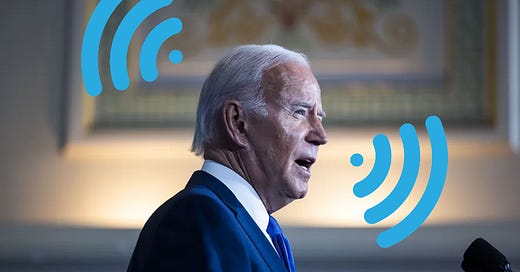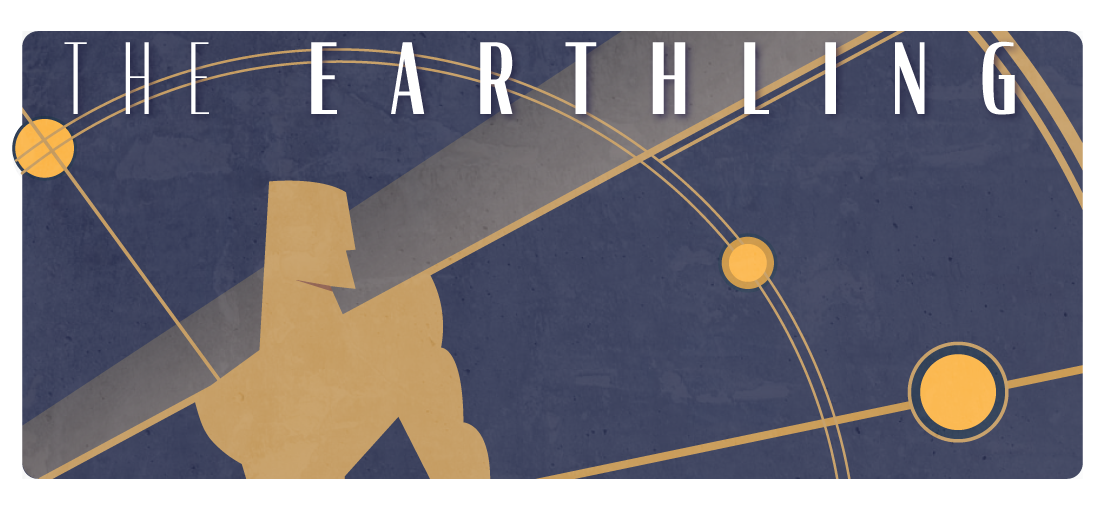Earthling: Decoding Biden’s Ukraine Diplomacy Signals
Plus: The breakfast food that could save the ocean, 10 charts that explain climate change, top 5 doomsday scenarios, and more!
This week—only two weeks after 30 progressives in Congress were shouted down for raising the subject of Ukraine peace talks—talking about peace talks became respectable. There was a flurry of reports about Biden administration officials discussing them—with each other and with Ukrainian officials. The question was what to make of it all, and answering the question called for the kind of detective skills employed by Kremlinologists during Cold War I.
First, last Saturday, there was a Washington Post report that President Zelensky—who in September decreed that peace talks are off the table so long as Putin is Russia’s president—was being encouraged by the White House to signal more openness to negotiations. This raised the question of what motivated this Biden initiative, and the two leading theories were: (1) a desire for peace; and (2) a desire to sustain the Ukrainian war effort.
According to the Post, the behind-the-scenes nudging of Zelensky is intended to ensure that Ukraine holds the “moral high ground in the eyes of its international backers”—in other words, it’s intended to ensure that weapons and other kinds of aid keep flowing to Ukraine.
So why shouldn’t we just embrace Theory #2 and be done with it? Because Biden may be playing five-dimensional chess! Some Bidenologists speculated that he really is trying to push Ukraine to negotiate, but doesn’t want influential American hawks to call him a squish—so the administration officials who leaked the story to the Post made the initiative sound like it’s just a clever way to keep the arms flowing.
In any event, there were signs that Biden’s nudging had at least some effect. In a speech on Monday, Zelensky slightly softened his stance on negotiations in the sense that he didn’t demand regime change in Russia as a pre-condition for them. But he did cite, as “conditions” for negotiating, the full restoration of Ukrainian territory and other things unlikely to garner Russian acquiescence—and certain not to garner it before negotiations even start.
Anonymous leakers, undeterred by Zelensky’s resistance, continued to move the plot forward. Two days after his modest recalibration, NBC News reported that “some US and Western officials increasingly believe that neither side can achieve all of their goals in the Ukraine war and are eyeing the expected winter slowdown in fighting as an opportunity for diplomacy to begin.” The NBC report said that US National Security Adviser Jake Sullivan, during a surprise visit to Kyiv, had broached the subject of a diplomatic resolution of the conflict. “He was testing the waters a bit,” a source told NBC.
And the Italian newspaper La Repubblica reported on Monday that NATO sees a “short-term negotiating window” if Ukraine takes back the port city Kherson, which Russia captured early in the war. According to La Repubblica, the US was pushing Zelensky to negotiate a ceasefire after his troops recapture the city.
As it happens, on Wednesday Russia announced it was withdrawing its troops from Kherson, to the east side of the Dnieper river. And on Thursday Gen. Mark Milley, Chairman of the Joint Chiefs of Staff, said on CNBC that “we’ve seen the Ukrainian military fight the Russian military to a standstill” and “we think there are some possibilities here for some diplomatic solutions.”
So maybe Theory #1 was correct, and the Biden administration’s nudging of Zelensky was in earnest after all?
Not so fast! On Friday a New York Times piece reported a split within the Biden administration, with pro-negotiation Milley facing opposition from civilian officials. The piece quoted Jake Sullivan saying that “the United States is not pressuring Ukraine,” and it reported that “American officials denied” that “the Biden administration was urging Mr. Zelensky to at least show willingness to negotiate.”
The closest thing to a resolution of all the conflicting signals came from Charles Kupchan, a former Obama adviser who was quoted in the Times piece as saying, “My sense is the administration is dipping its toe in the possibility of diplomacy. They’re trying to thread the needle. They want to introduce the possibility of diplomacy without appearing to be telling the Ukrainians what to do… It’s setting the table, but it’s not sitting at the table.”

One of the biggest impediments to ending the Ukraine War via peace talks is the fact that Russia is exceedingly unlikely to agree to cede all the Ukrainian ground it’s taken since the invasion. This means any plausible peace deal would seem to amount to positive reinforcement for invading a sovereign country. That’s a bad thing in itself, and it comes along with a second complication: a peace deal could be cast as a “win” for Putin and a “loss” for Biden, which might dampen Biden’s enthusiasm for it.
Recently, Samuel Charap of the Rand Corporation, an expert on Ukraine and Russia, came on the Nonzero Podcast and addressed this issue:
I would say about loss and victory: I think there's a framing problem here. Because in my view—and I think this could be made into a sort of public narrative—Russia has already lost no matter where the line is. Russia's strategic defeat—as I think the term is often tossed around by US officials—is already a thing. That's done. And [it doesn’t] matter how much territory Russia takes control over because of the astonishing damage to a) their military capabilities, b) their international reputation, c) their economy, their capacity to re-arm. I mean, Russia has weakened itself in the last nine months, more than any US policy… could have done.
You can watch the whole conversation here or listen to it via the Nonzero podcast feed.
If you’re tired of hearing me talk about cognitive empathy, I have great news: Now you can listen to someone else talk about it! This week I taped a conversation with noted psychologist Paul Bloom, author of, among other books, Against Empathy: The Case for Rational Compassion. Paul’s book is mainly about emotional, not cognitive, empathy—and the relationship between the two is one thing we talk about. This conversation won’t go public for more than a week, but paid NZN subscribers can listen to it now, either here or via the NZN feed in their podcast apps.
Climate change is a global problem. So why not address it via global governance? This question, which may sound radical to American ears, sounds more sensible in countries getting hit the hardest by global warming or most lacking in the resources to cope with it. This week, at international climate talks in Egypt, some of these nations called for a global tax on the profits of fossil fuel corporations.
The idea would mesh with another idea under discussion at the Egypt conference: that rich nations, whose industrialization did so much to create climate change, subsidize developing countries to help them handle the resulting fallout. Barbados Prime Minister Mia Mottley said a tax on fossil fuel companies could be channeled into a fund that would be used for that purpose.
Ideas like this may as a political matter face an uphill battle, but they do have logic on their side, given that the effects of climate change don’t respect national borders. Pakistani Prime Minister Shahbaz Sharif, in reference to recent floods that caused $30 billion in damage, said, “This all happened despite our very low carbon footprints.”
Having trouble deciding which existential threats to focus your anxiety on? Joel Achenbach of the Washington Post can help! He has assembled a “Top 10 Existential Worries” list. Numbers 2 and 3 you’ve heard of—climate change and nuclear war (the latter “may jump soon to No. 1”). Number 4—AI getting out of hand – is more exotic, but not unfamiliar to NZN readers. And rounding out the top 5: totalitarian dystopia.
So, how about number 1?






